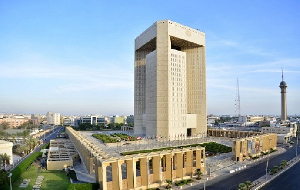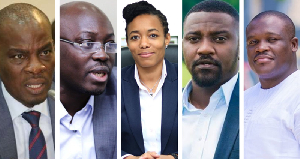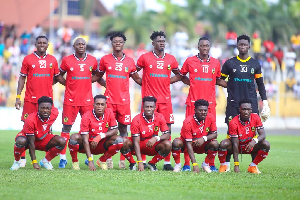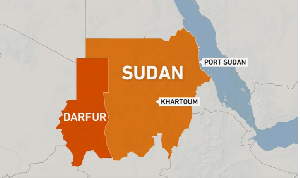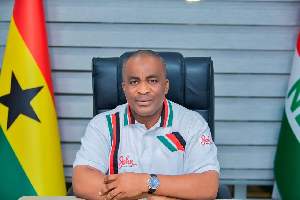Within the wider conversation of financial inclusion as has been championed by successive governments, Islamic Banking and Finance (IBF) scored a major political win when it was copiously referred to in the manifesto of a major political party.
According to the 2024 manifesto of the main opposition National Democratic Congress (NDC), a future NDC government will take steps to bolster IBF as part of its economic recovery plan.
The promise to pursue “membership of the Islamic Development Bank to broaden opportunities for development financing,” is listed as part of 13-point fiscal policy measures specifically under ‘Scaling up Revenue Mobilization’ subheading on page 5.
The question that arises is, why the Islamic Development Bank (IsDB) and what are the immediate to medium- and long-term benefits that could accrue with joining the multi-national economic bloc?
National membership of multilateral finance institutions is not new to Ghana, one can point to among others continued association with the Bretton Woods duo of IMF/World Bank, the African Development Bank (AfDB), the West African Monetary Union (WAMU) and others.
A membership long overdue?
“Each group brings a unique set of benefits for member countries, in the case of IsDB, the term Islamic is ceremonial for want of a better word, mind you Togo, Sierra Leone, Ivory Coast and Benin for example, non-Islamic neighbours are members of IsDB.
“So, like the others, Ghana can join and by doing so enjoy the array of benefits that could accrue,” Dr. Shaibu Ali, the Director of ethical-finance think-tank Islamic Finance Research Institute of Ghana (IFRIG) stated in an interview.
It is interesting to note that currently Ghana is one of three West African countries that do not belong to the IsDB, the others are Liberia and Cape Verde.
It is also worthy of note that Africa accounts for almost half of the 57 countries with 27 African members spread across North and Sub-Saharan Africa.
What Ghana stands to gain
Benefits that accrue to members include but are not limited to the tapping into the diverse portfolio that IsDB presents from infrastructure, education, health financing as well as the area of humanitarian relief and the area of women and girls.
The area of infrastructure development has been a big issue in Ghana with successive governments promising to and contracting loans in some instances securitizing assets to attract the needed funding.
IsDB states of its infrastructure record: “A resilient, sustainable infrastructure network plays a crucial role in ensuring the continued economic growth of developing countries.
“By investing in urban and agricultural development, as well as the energy and transport requirements that these areas demand, we can continue to enable our projects to maintain and enhance and their impact under a sustainable model.”
A clear testament to the above is in neighbouring Nigeria where IsDB funding through Sukuk bonds floated by the federal and state governments has seen especially major road projects executed.
About IsDB
According to their official website, IsDB defines itself as: “a multilateral development bank (MDB), working to improve the lives of those we serve by promoting social and economic development in Member countries and Muslim communities worldwide, delivering impact at scale. We provide the infrastructure to enable people to lead better lives and achieve their full potential.”
Our Mission, it continued, is: “To promote comprehensive human development, with a focus on the priority areas of alleviating poverty, improving health, promoting education, improving governance, and bringing prosperity to the people.”
The present membership of the Bank consists of 57 countries. The basic condition for membership is that the prospective member country should be a member of the Organization of the Islamic Cooperation (OIC).
The IsDB Board of Governors has the authority to set the terms and conditions on the subscription and payment to the capital of the Bank.
Ethical finance don Prof Gatsi on NDC’s Islamic finance plans
On page 10 of the NDC manifesto under the subheading, ‘Restoring Confidence and Integrity in the Capital Markets,’ the NDC stated further that it would “facilitate the introduction of new financial products, including exchange-traded funds (ETFs), asset-backed securities, infrastructure bonds, derivatives, and Islamic financial products, diversifying investment opportunities and boosting market activity.”
“This is a seismic development however you look at it, it is a big first step. Political commitment to a very unique alternative finance module that is tried and tested globally is key,” Prof John Gatsi, Dean of the University of Cape Coast (UCC) Business School stated.
He is clear that there remains more grounds work to be done to ensure that the proposal comes to fruition, “the time is now, more than ever, to put in the hard work,” he stressed.
On his part, Director of IFRIG, Dr. Shaibu Ali, explained that it was a foot-in-the-door moment for ethical finance advocates.
“Having a major political player make such these commitments is in the view of IFRIG, having a foot in the door, now we must boost our advocacy and cooperation with other stakeholders within and outside to ensure that we get through the door properly and into the room.
“Indeed, it is when we are in the room that the real heavy lifting of more research and collaboration through to rollout of ethical finance products and services will start, but whichever way one looks at it, this is as huge as it comes,” Dr. Ali emphasized.
He agreed with Prof. Gatsi’s assessment that the development was seismic but would require greater cooperation between now and fruition. “The IsDB has supported many governments in the subregion, it is exciting to know that Ghana is looking to benefitting from its offering sooner or later,” Dr. Ali added.
IFRIG has examined the manifestos of the two biggest political parties in relation to the adoption of Non-Interest Finance, within the context of the providing extra economic buffers to the Ghanaian economy as experienced by other countries in the sub region and beyond.
It is evident that the NDC manifesto provides a clear strategy to the adoption of non-interest finance, which will in the short, medium and long term positively affect the economic fortunes of Ghana by way of infrastructure financing and financial inclusion.
The way forward
However, the 2024 elections ends, advocacy for government to explore membership of OIC and by so doing IsDB must continue and IBF and its variants must sooner rather than later be a reality for persons who are averse to the interest-based system and have long yearned for an alternative system.
We agree with Prof Gatsi, “the time is now, more than ever, to put in the hard work.” We are all involved or is it we all should be involved?
Click to view details



Business Features of Friday, 20 September 2024
Source: IFRIG





